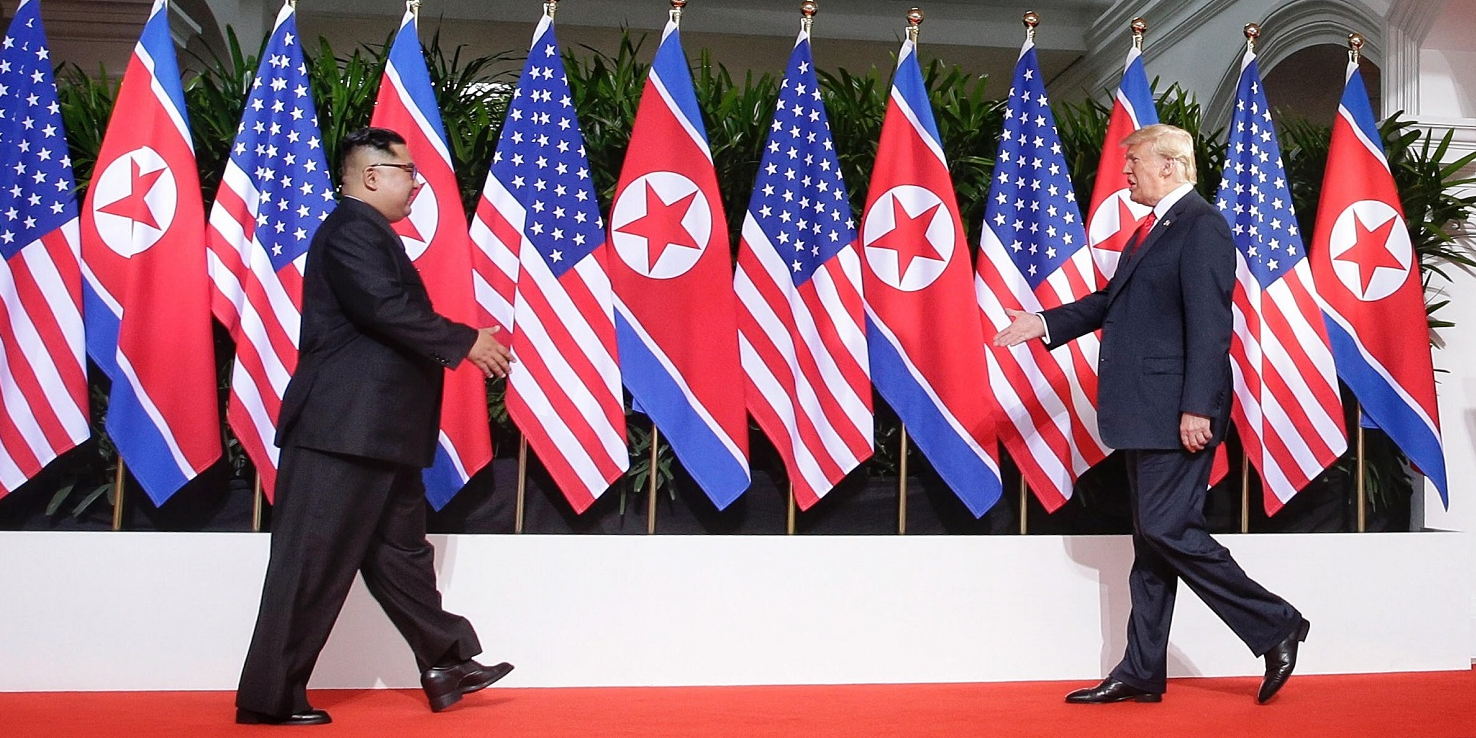- President Donald Trump and Kim Jong Un signed an agreement on Tuesday that failed to implement meaningful action towards denuclearization, or promise any other concessions by North Korea.
- Some experts described the agreement as “depressing” and “generic,” while Trump said the lack of actionable items was because he was only in Singapore “for one day.”
- But Leonid Petrov, a Korean studies expert at the Australian National University, told Business Insider that the summit should be seen as a success in building trust and busting myths between the two countries.
- Trump also repeatedly praised Kim as being a “very good negotiator,” hinting at Kim’s tougher stance towards concessions than perhaps Trump expected.
The agreement signed between President Donald Trump and North Korean leader Kim Jong Un comes up short of achieving meaningful action towards denuclearization, experts say.
The Trump administration has made clear that complete, verifiable, and irreversible denuclearization (CVID) is its intended goal in having talks with North Korea, but Kim didn’t seem to make any promises towards achieving that goal.
“The ultimate objective we seek from diplomacy with North Korea has not changed. The complete and verifiable and irreversible denuclearization of the Korean Peninsula is the only outcome that the United States will accept,” Secretary of State Mike Pompeo said yesterday at a press briefing. “North Korea has previously confirmed to us its willingness to denuclearize, and we are eager to see if those words prove sincere.”
But on Tuesday, Trump signed an agreement that stated only that North Korea “commits to work towards complete denuclearization of the Korean Peninsula.”
Despite Trump describing the language as "very strong" at a press conference afterwards, the agreement did not say North Korea will definitely denuclearize, it didn't provide any sort of timeline, and the terms "verifiable" and "irreversible" were not included. Trump said North Korea promised to close additional missile testing sites in addition to the agreement on paper.
"If this is it this is depressing," Robert Kelly, a North Korea expert at Pusan National University tweeted about the Trump-Kim agreement. "This is even thinner than most skeptics anticipated. I figured Trump [would] at least get some missiles or a site closure or something concrete. This looks pretty generic."
Asked about the lack of specifics in the deal, Trump told a reporter, "There's no time, I'm here for one day."
But this was precisely the issue North Korea experts have been concerned about - that the gap between the two leaders was too large to be bridged within three months - and why many urged the Trump administration to hold more working-level talks before the two leaders met.
Considering the short amount of time, Leonid Petrov, a Korean studies expert at the Australian National University, told Business Insider, that as a trust-building and "myth-debunking" exercise the summit should be considered a success.
"The meeting took place, the two leaders met, it was a friendly exchange, and both delegations spent time together... I think it was good that they completed some sort of communique, even though it was not very definitive at least it was positive," Petrov said.
"It was probably the maximum of what could be achieved given that the preparation was rather hasty, and given that at some stage the meeting was called off and then reconvened again. I think it was maximum of what we could expect," he added.
Within less than 12 hours of meeting Kim, Trump also praised the North Korean leader as "very smart" and, twice called Kim a "very good negotiator."

